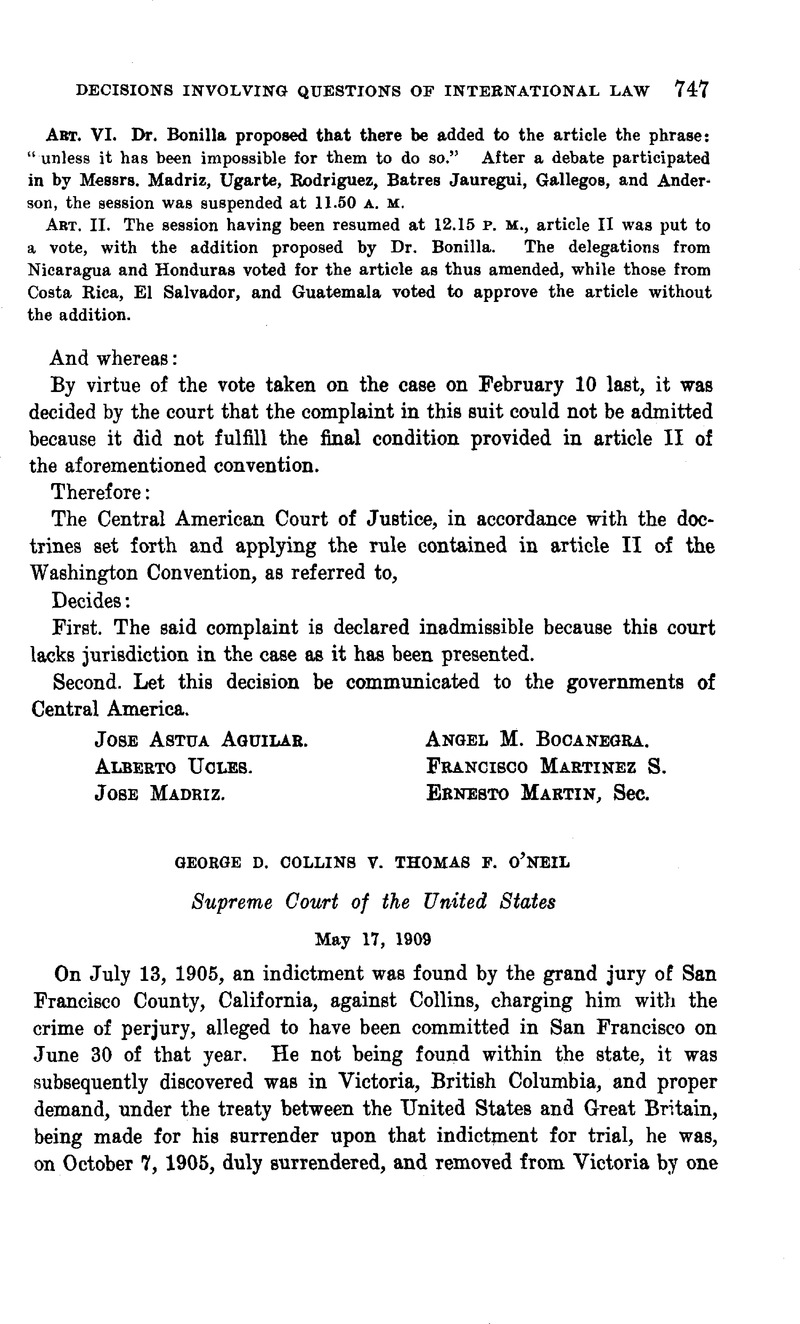No CrossRef data available.
Published online by Cambridge University Press: 04 May 2017

1 U. S. R. S., section 5275; 3 U. S. Compiled Statutes, page 3596. “Whenever any person is delivered by any foreign government to an agent of the United States, for the purpose of being brought within the United States and tried for any crime of which he is duly accused, the President shall have power to take all necessary measures for the transportation and safekeeping of such accused person, and for his security against lawless violence, until the final conclusion of his trial for the crimes or offenses specified in the warrant of extradition, and until his final discharge from custody or imprisonment for or on account of such crimes or offenses, and for a reasonable time thereafter, and may employ such portion of the land or naval forces of the United States, or of the militia thereof, as may be necessary for the safekeeping and protection of the accused.”
2 The two cases were (1) writ of error from Supreme Court of California for refusing habeas corpus; (2) appeal from U. S. Circuit Court for the Northern District of California for refusing habeas corpus.